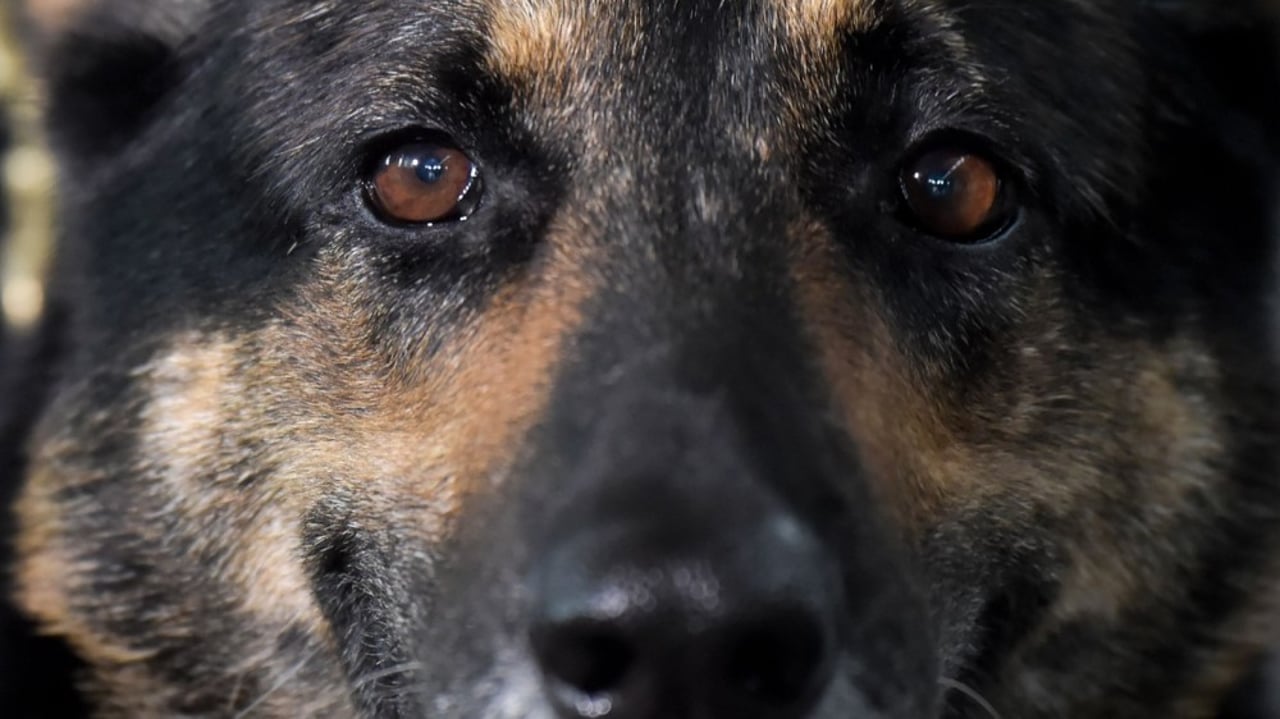
Frequently asked questions on Coronavirus
News
The outbreak of COVID-19 is causing fear and uncertainty for many. Do not abandon your pets due to rumours and fear of coronavirus.
Can I get Coronavirus from my pet or any stray animal?
Current advice from the World Health Organisation is that there’s no evidence that pets or any stray animal can be a source of infection or that they can become sick from coronavirus. At the moment, there is no evidence that companion animals can spread coronavirus. New information on COVID-19 is rapidly evolving, and information will be updated as it becomes available.
What about the Pomeranian and the German Shepherd dogs in Hong Kong that tested positive?
Two dogs in Hong Kong have been quarantined and tested for coronavirus. Both dogs were owned by people that were sick and the virus found in their mouth and nose tested as “weakly positive”. Neither dog developed signs of sickness. At this time there is no evidence to suggest that dogs can get sick from coronavirus or that they can be a source of infection for humans, as they cannot replicate and transmit COVID-19. However, we should always keep sanitary measures, such as washing our hands before and after we spend time with our animals or touch their belongings.
Can I kiss and hug my dogs? Can I let my dogs kiss and hug me and my kids?
We know you love our pets, but kissing them is never a good idea. Both dogs and cats, as we do, carry bacteria in their mouths that can cause diseases. Some dogs like to be hugged, some others don’t. Please don’t hug dogs or cats that look uncomfortable or scared, as they will suffer from stress and may bite. If you wish to pet them, you can do so, but do wash your hands after petting, walking, feeding them, as this will eliminate any microbes from your hands, including coronavirus, if it has come into contact with the pet’s fur.
Should I avoid contact with my pets if I am sick with COVID-19?
Although there have been no reports of pets or other animals becoming sick with COVID-19, it is still recommended that people sick with COVID-19 limit contact with animals until more information is known about the virus. This can help ensure both you and your animals stay healthy. There is still much to be learned about COVID-19 and more information will become available as the time passes.
If I have corona virus, do I need to quarantine my dog?
There is no evidence at this time that pets can be a source of infection of coronavirus. Therefore, there is no need to quarantine your pet if you are sick. However, people sick with COVID-19 are recommended to limit contact with animals until more information is known about the virus.
If my dog gets ill, what should I do?
Dogs and cats can get sick from many things. There is no evidence at this time that your pet can get sick from COVID-19. However, if your dog or cat develops an unexplained disease or comes into contact with someone infected with the coronavirus, talk to your veterinary and/or public health officials. Inform your vet beforehand so that they can prepare. Do not take your pet to the vet unless you are instructed to do so.
Should I put on a mask on my dog if it is sick?
No. There is no evidence that dogs or cats can transmit COVID-19 to people or get sick from it. Putting masks on them can interfere with their breathing and cause them stress. Flat-faced breeds (pugs, bulldogs, etc), which already have labored breathing, can suffer from heatstroke with a mask.
How can I walk my dog in a lockdown situation?
Dogs and cats will continue to need physical activity. Therefore, you should keep the time allotted for walking to carry out physical activity, but you should replace the walk with play. For example: a ball game within your house or you can create new games with new toys or you can try to enrich the environment with hidden treats so that your dog does not get bored. In the case of cats, it is important to give them vertical structures that they can climb.
Should I vaccinate my dog against coronavirus?
The current canine coronavirus vaccines available are made to protect against enteric (digestive system) coronavirus infection (CCoV) and are not licensed to protect against respiratory infections. There is no evidence that the canine coronavirus vaccine will provide cross-protection against an infection with COVID-19 in animals. Therefore, the canine coronavirus vaccine will do nothing for COVID-19.
What happens to my companion animal if I am hospitalized?
Do ensure that somebody can take care of your animal if you are hospitalized. Some dogs and cats may become nervous, anxious, and even aggressive if they feel unsafe at a new place, so it would be better for somebody to feed and play with them in the pet´s own home. However, if there is lockdown, the best thing to do is to have someone (preferably individual that dog is already familiar with) take the pet to a new temporary home where it will be better taken care of.
Can stray dogs spread the coronavirus?
No. There is no evidence that dogs or cats can transmit COVID-19 to people or get sick from it. There has been no case in the world of COVID-19 transmitting from a stray dog or cat to humans.
How can I still feed/take care of stray dogs?
Like with pets, there is no evidence that community dogs can get sick from COVID-19 or spread the disease to people. After all, owned or not, they are still dogs. If you come into contact with a community dog, however, make sure to wash your hands after, as this will remove all sorts of microbes. People that were feeding them might need to stay home or be in lockdown.
First and foremost, follow the sanitary recommendations of your country and any laws that have been set in place to prevent the spreading of coronavirus. If you have the opportunity to go out and feed animals that will otherwise not eat, do so with precaution so as not to spread the virus. If you believe that you are sick from coronavirus, do not go out.
I’ve read some people are abandoning or euthanizing their dogs and other animals as a precaution. Should I consider doing that as well just to be safe?
It is unfortunate that due to misplaced fear, people abandon animals or even euthanize them. As we have mentioned, there is no evidence that dogs or cats can get sick from COVID-19 or spread the disease to humans.
Also, despite evidence that dogs and cats do not transmit the disease, they might be culled due to fear. Culling roaming dogs is not only inhumane, but also ineffective in eliminating dog mediated zoonotic diseases. Rabies is an example of this. Killing dogs undermines vaccination efforts where turnover is high and is unethical when mass dog vaccination is proven to work. Let´s not make coronavirus another example of cruel and ineffective measures.
What steps should I take during this time of lockdown and self isolation to keep my pets safe?
The best way to prevent the disease is hand washing, responsible coughing/sneezing, wiping surfaces with disinfectant, and social distancing. Abandoning or killing animals causes suffering to the animals, feeds a cycle of misplaced panic, is cruel and unethical, and does not resolve the pandemic.
We highly recommend all pet owners take care of their animals and keep calm. Abandonment should not be an option in any circumstance. Be a responsible owner, continue giving love and attention, taking care of them, but avoid kissing your pets and wash your hands after coming into contact with your pets and their food/toys.
Should my community drive off stray animals in the area or call the local authorities to deal with them just to be extra safe?
Never! Animals should not become victims this pandemic. They are vulnerable, and they need our help and protection. There is no evidence that stray dogs or cats can transmit COVID-19 to people or get sick from it. We don't need to be scared or concerned about these animals passing on the infection. As always, we should follow all sanitary recommendations as indicated by health authorities, such as hand washing.
How can I help animal shelters and stray dogs during this time?
One unfortunate side effect of the pandemic has been that shelters are no longer able to take volunteers, funding has dropped, and people that could otherwise adopt, are not doing so. Because of social distancing, shelter staff are no longer able to carry out vaccination, sterilization, or education campaigns. This is dangerous to animals that depend on this care for their survival and welfare. Call the shelter and see if there is a possibility to foster an animal, whilst you are working from home. Donating food or money could be an easy and helpful thing to do.
I have always allowed my dogs to roam freely in the community. Given current situation, should I continue to let my dog roam freely or should I restrict my dog to stay in the house?
There is no evidence of the risk of transmission of covid-19 from dogs. Hence, if your dog is healthy, sterilized, vaccinated against rabies, and your community is tolerant of free roaming dogs – then there may not be a need to impose additional restrictions. However, it might be the case that because of lack of knowledge and awareness on the nature of coronavirus, communities across the world are currently unsure and afraid of free roaming dogs. Only under such circumstances, we recommend that some restriction is applied in terms of letting your dog roam freely so as to ensure its safety.
It is also a threat to companion animal welfare as some owners worry that pets could spread the virus and get quarantined. Some people are worried that both dogs and cats will get inhumanely culled due to fear. We have certain Q&A’s to address different uncertainties and separate myths from reality.
